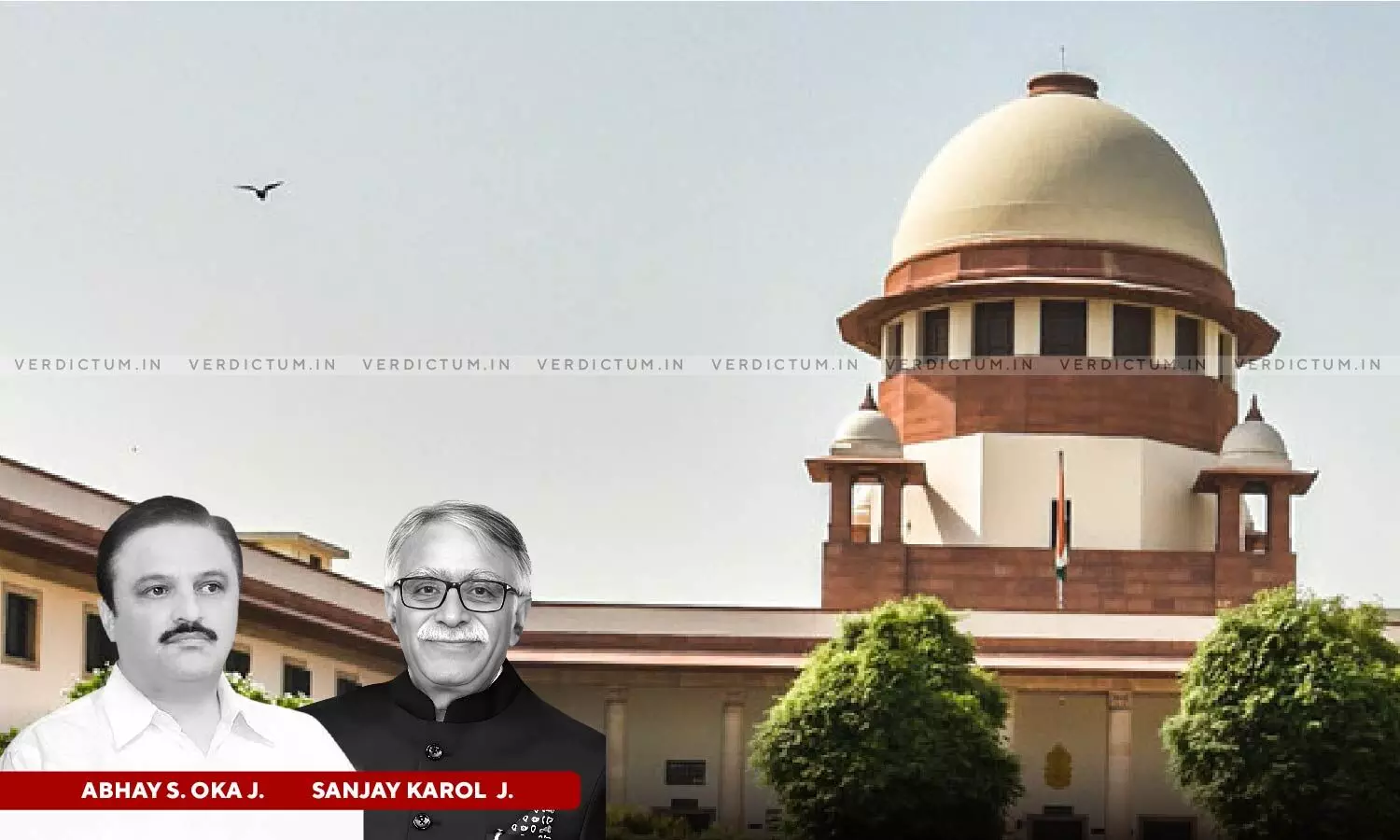
IRDAI Regulations 2015 Prohibit Levy Of Any Fee For Recording Assignment Of Policies- SC Dismisses LIC's Appeal
 |
|The Supreme Court held that LIC had no right to claim fees of Rs.250/- for recording the endorsement of assignment or transfer. The issue revolved around Section 38 of the Insurance Act, of 1938, which pertains to the assignment and transfer of life insurance policies.
The Court held that as per the Insurance Regulatory and Development Authority of India (Fee for granting written acknowledgement of the receipt of Notice of Assignment or Transfer) Regulations, 2015, there is no provision in the said regulations which prescribes the levy of any fee for recording the assignment of policies.
A two-judge Bench of Justice Abhay S. Oka and Justice Sanjay Karol held that, “Though, there was a specific provision made to levy a fee for giving acknowledgement of notice of transfer, the legislature, in its wisdom, has not provided any fee or charge for recording the assignment or transfer in the records of the insurer.”
Section 38 of the Insurance Act allows policyholders to transfer or assign their life insurance policies either with or without consideration. It mandates that such transfers or assignments must be endorsed on the policy or through a separate instrument, signed by the transferor and attested by a witness.
The appellant, Life Insurance Corporation of India, introduced a circular on April 24, 2006, imposing a registration charge of Rs. 250 per assignment. Respondent, a finance company, challenged this circular in the Bombay High Court on various grounds, including its alleged inconsistency with Section 38 of the Insurance Act and the Constitution of India.
The High Court held the circular unconstitutional, stating that the Rs. 250 charge was essentially a service fee without a legal basis, violating Article 265 of the Constitution, which deals with taxation. It also raised concerns about violating other constitutional articles, including Articles 14, 19(1)(g), and 300A.
Advocate Ashok Panigrahi appeared for the Appellant and Advocate Aslam Ahmed appeared for the Respondents.
The appellant's argument rested on Section 6 of the Life Insurance Corporation Act, 1956, which obliges them to conduct life insurance business based on business principles. They argued that the fee of Rs. 250 was justified as it covered administrative expenses related to recording assignments.
The Supreme Court referred to Section 38 of the Insurance Act, emphasizing that it doesn't authorize the levy of such a fee. While a fee of Rs. 1 was permitted for issuing an acknowledgment of assignment, there was no provision for recording assignment fees.
The Court noted that no rules, regulations, or clauses in insurance policies permitted this fee. It pointed out that even the Insurance Regulatory and Development Authority of India had regulations specifying fees for acknowledging assignments but prohibited additional charges for recording assignments.
Consequently, the Court upheld the High Court's decision, ruling that the appellant had no legal authority to charge a fee of Rs. 250 for recording assignment endorsements. The appeal was dismissed.
Cause Title: Life Insurance Corporation of India v. Dravya Finance Pvt. Ltd. & Ors., [2023INSC815]
Click here to read/download Judgment